When the Osun State Tourism Board selected “Iloko-Ijesa” as the host community for the “2023 World Tourism Day,” many people were interested in finding out what noteworthy, historical, or relevant interest the ancient town might have that would have inspired the entire state to celebrate the “Tourism Day” in the town.
World Tourism Day is celebrated on September 27. The day emphasizes the role that tourism plays in promoting social cohesion, economic development, and sustainable growth. The goal of the day is to inspire people all across the world to appreciate the diversity and beauty of our planet while also being aware of the obligations that go along with it.
WITHIN NIGERIA traveled to Iloko-Ijesa, a historic village in Oriade Local Government, Osun State, Nigeria, and joined hundreds of tourists to commemorate the “2023 World Tourism Day.” This reporter traveled via Ijebu-Ijesa to the palace of His Royal Majesty, Oba Olusayo Akeem Ogungbangbe, the paramount ruler of the Iloko-Ijesa kingdom.
When this reporter got there, he spotted some visitors and a group of traditional drummers under the tent in front of the palace. Secondary school students across Iloko-Ijesa were debating in a room while other students could be seen cooking familiar local dishes outside the room’s entrance. Traditional drummers were spotted entertaining visitors as palace aides and chiefs could be seen pacing the tent to make sure everything went according to plan.
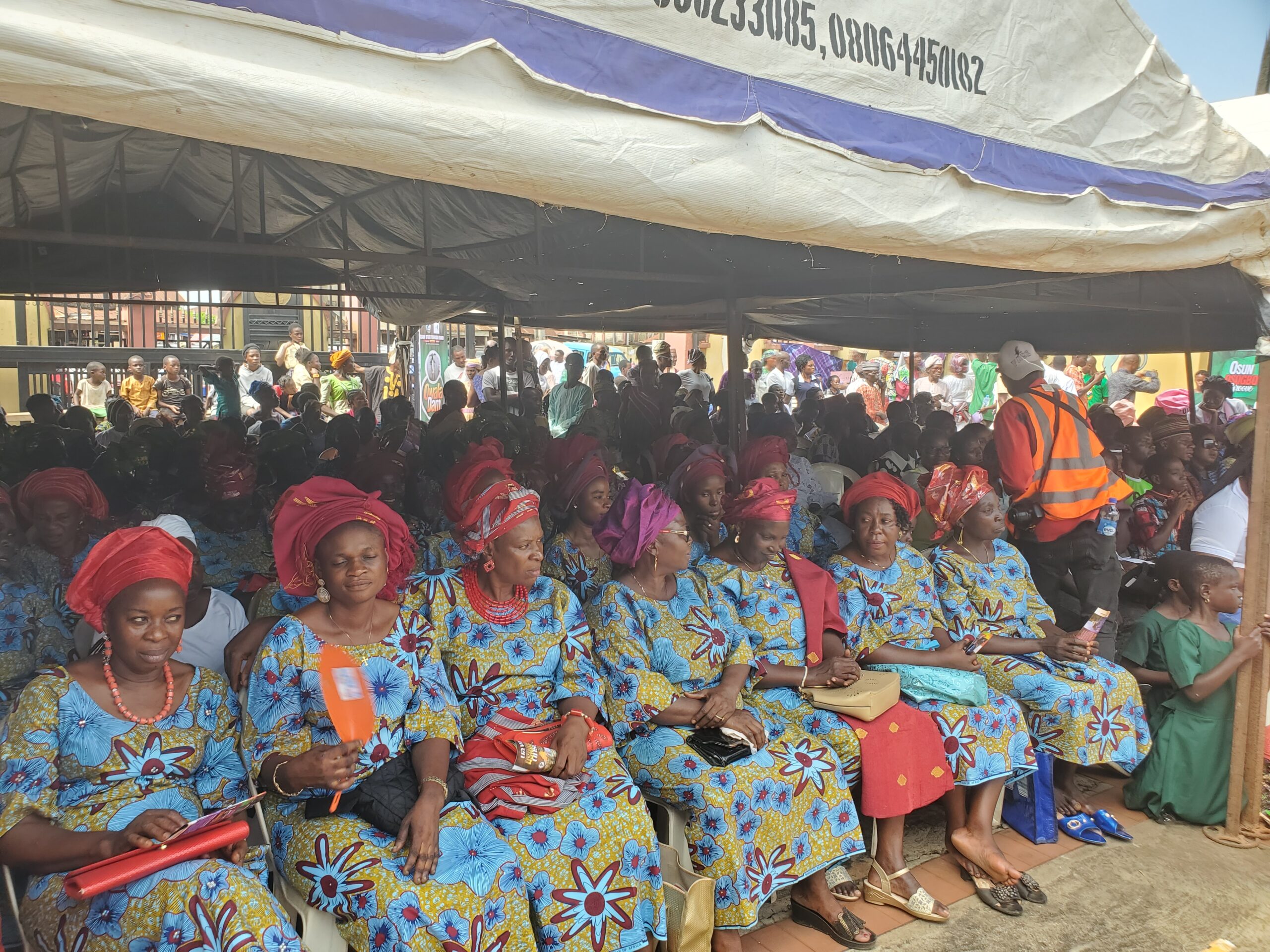
The monarch and his chiefs left the inner chamber of the palace to escort tourists, natives, and others to historically significant and culturally significant locations throughout the ancient town. The king led the walk to these important historical sites namely; Omi Afèrò, Omi Aayo, Omi Olorowa, Obalogun shrine, Ugbo Ojubo and a shrine along Ijeda road where the community performs the annual Obalogun festival.
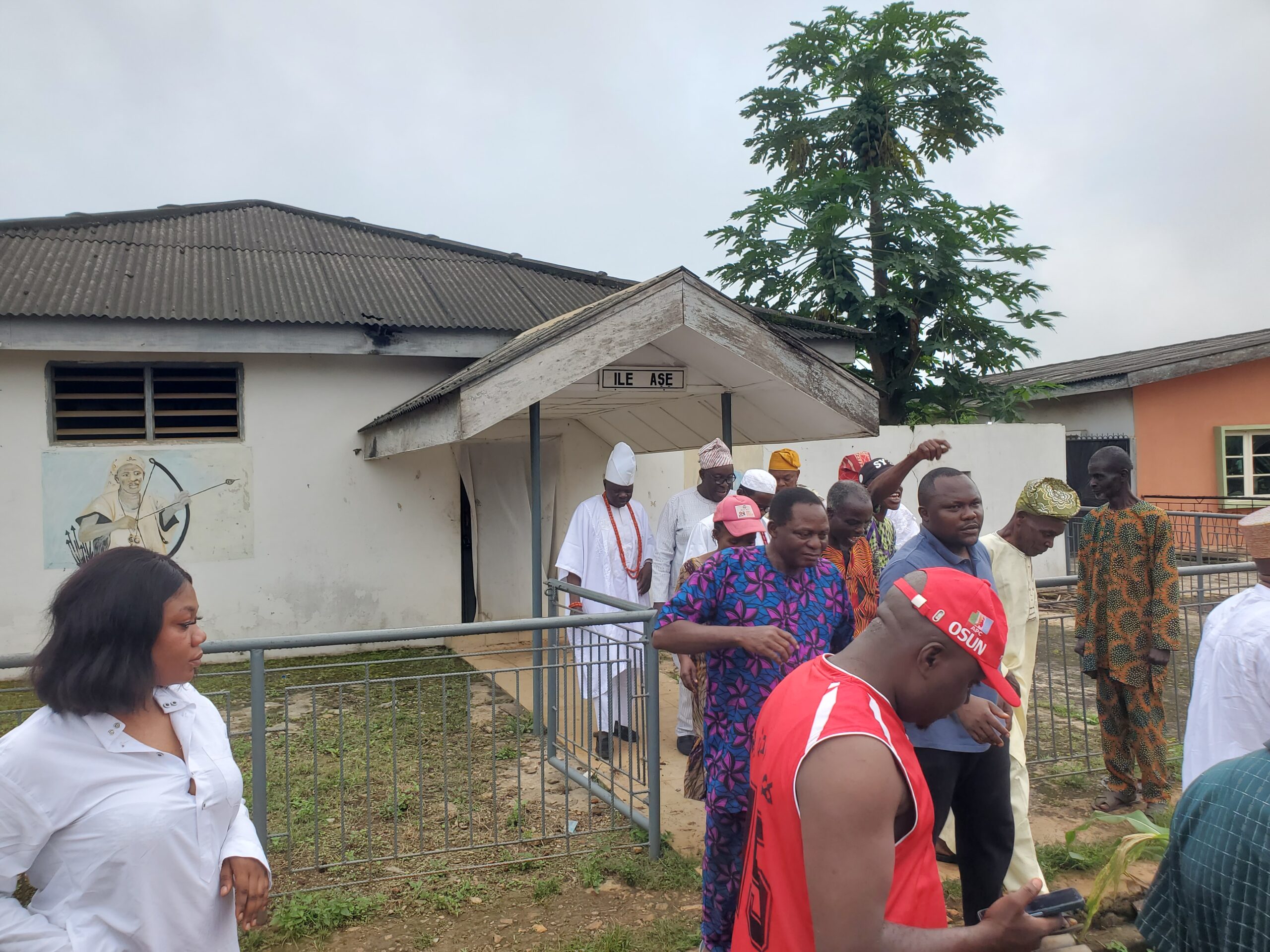
Chiefs, tourists, and other invited visitors listened as Owaloko of Iloko-Ijesa highlighted six traditional and historic sites in the town.
Omi Olorowa is another water intended for healing and prayer, according to Oba Ogungbangbe, while Omi Aayo is a healing water consecrated by the late Apostle Ayo Babalola.
Oba Olusayo Ogungbangbe referred to the Obalogun shrine as the Ile-Ase and asserted that it is where chiefs and obas are crowned and that everything said there would come to fruition. Every year, worshippers go to Ugbo Ojubo, a traditional and spiritual location, to make offerings to a deity. Every year, people flock to Ugbo Ojubo to pray and make requests of God, and they always return to express gratitude when their pleas are fulfilled, he continued.
Out of the six historical and cultural monuments the monarch listed, this reporter was particularly interested in “Omi Afero,” which is just one kilometer from the palace of Oba Olusayo Akeem Ogungbangbe, the Owaloko of Iloko-Ijesa. Omi Afero is a spiritual stream that is used to treat and heal a variety of illnesses.
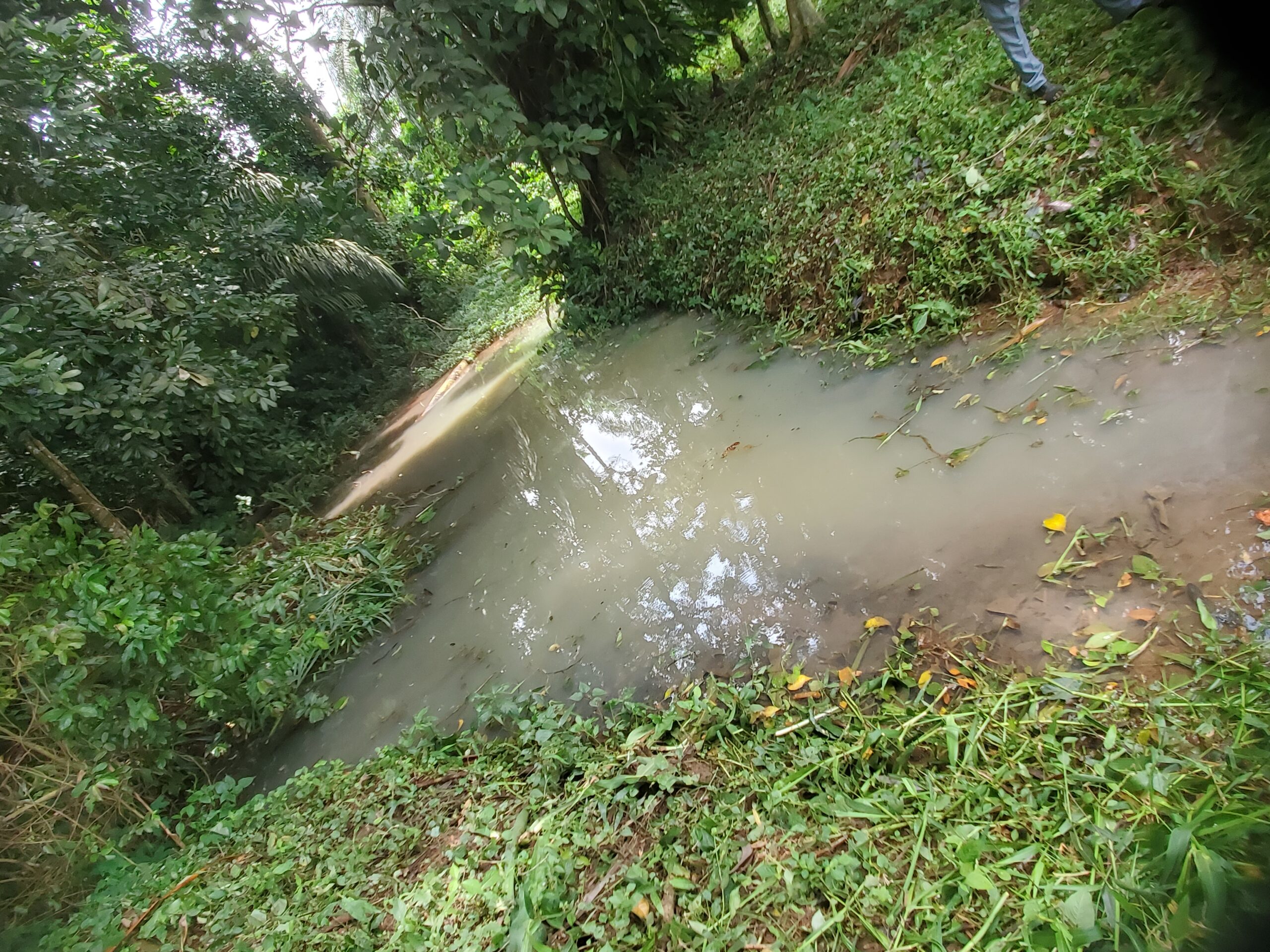
“The Afero groove” is situated on almost 20 acres of forestland. The “special water” known as “Omi Afero” is directly opposite “The Apostolic Church”, Iloko-Ijesa assembly, which is a part of the Ijebu-Ijesa district.
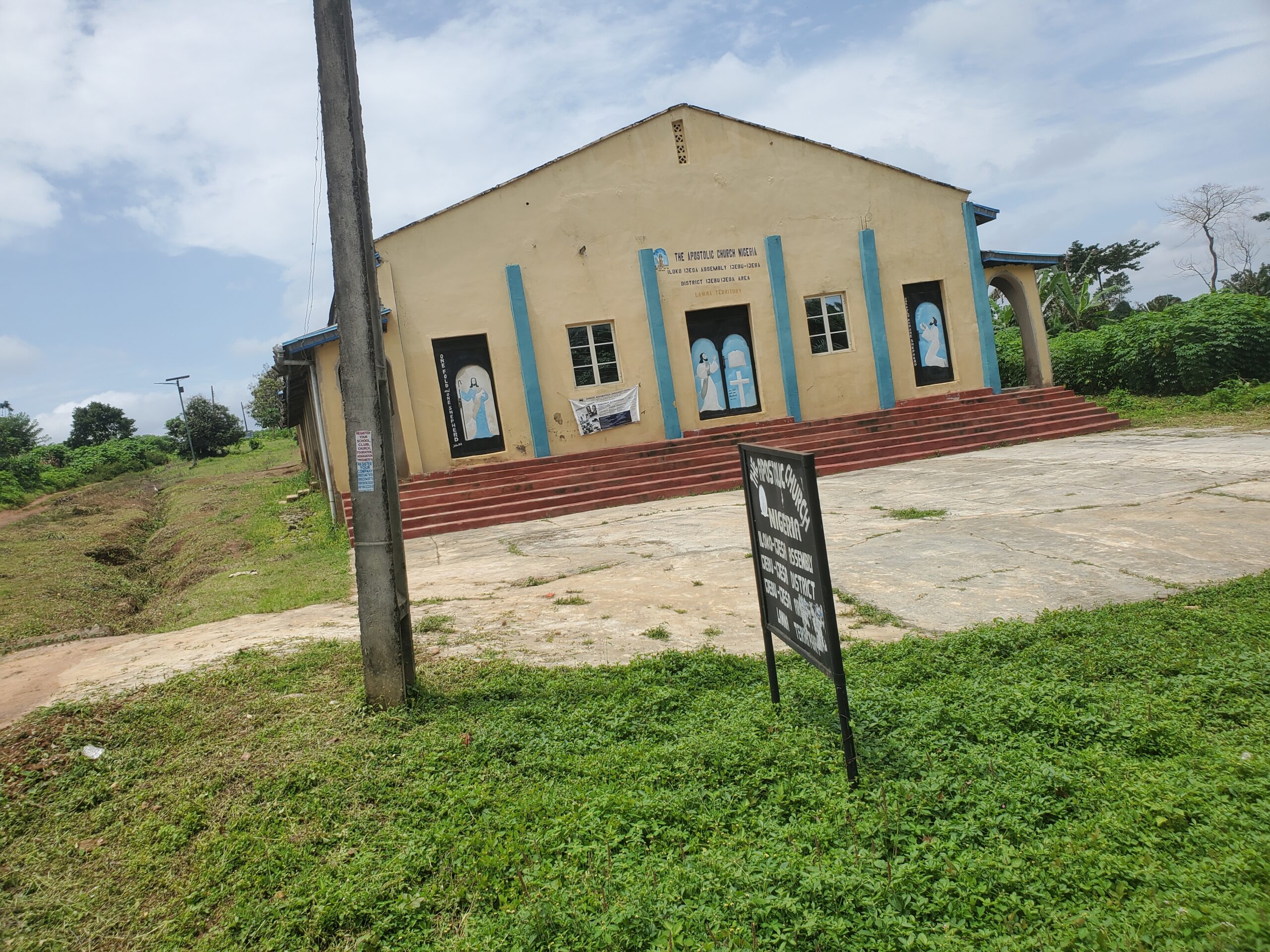
To draw attention to the area and inform visitors, the Owaloko in council erected a notice post with the words “Omi Afèro, AFERO GROVE – ILOKO IJESA, OSUN STATE” in large letters.
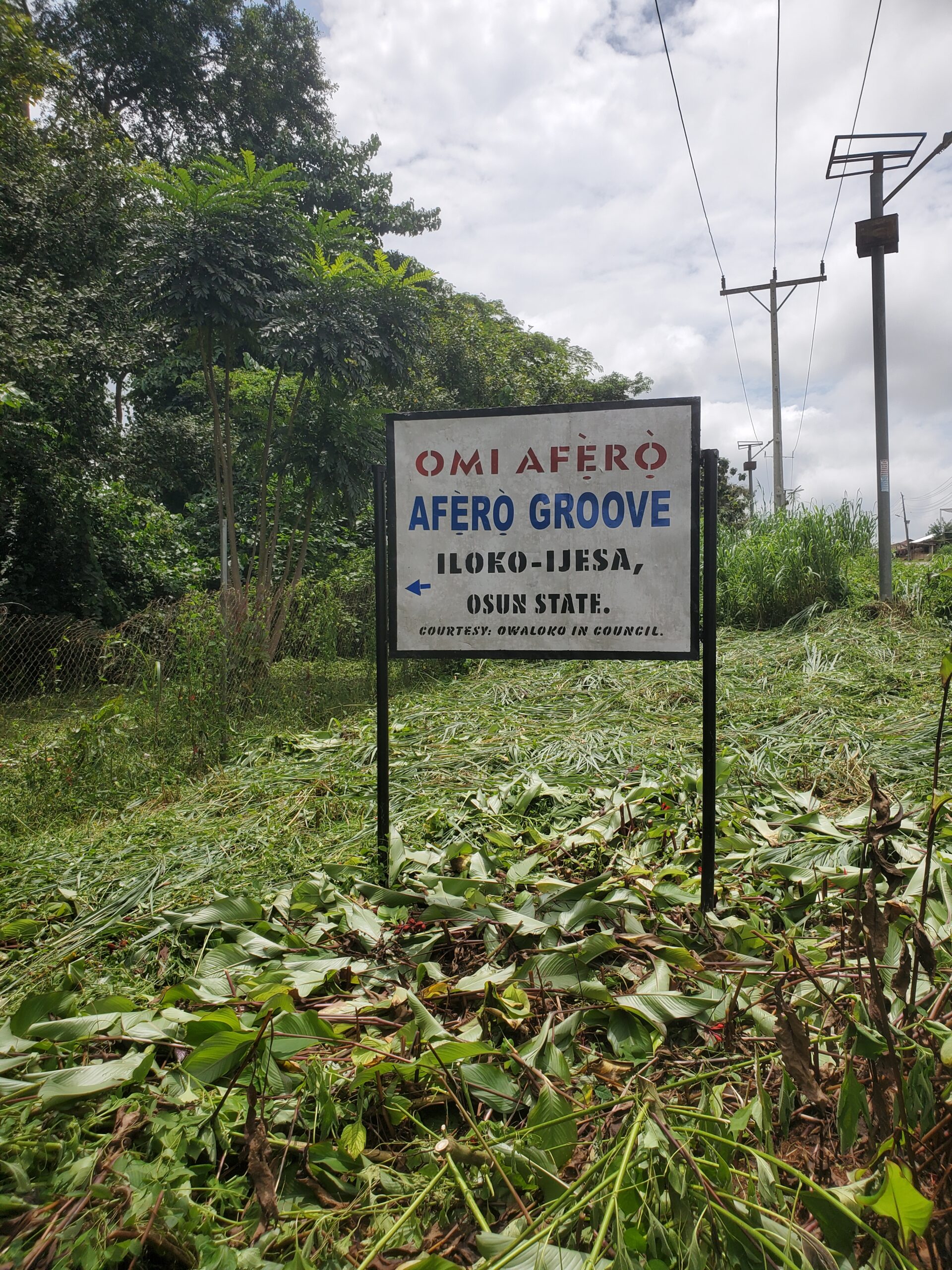
When this reporter arrived at Afero groove, he noticed that the area where the water emerges from the ground is a little bit sloppy off the main road leading to the palace. As the water gradually emerges, it turns into a flowing stream, and an artificial dam was made from it to be used at the Royal Park, which houses a guest house, Olashore International School, and the residence of the former king, Oba Oladele Olashore.
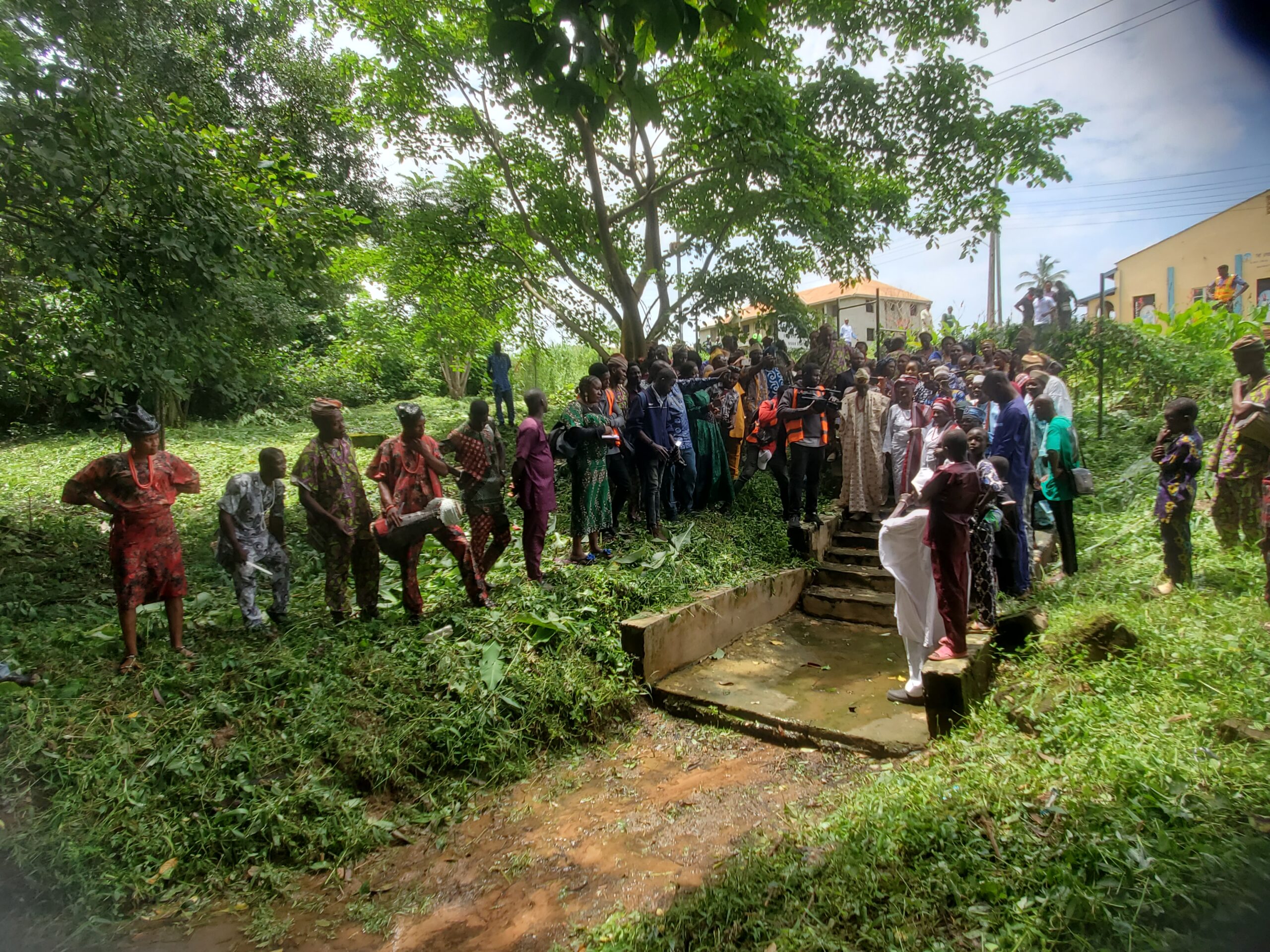 When speaking to tourists at the “Afero groove,” Oba Akeem Ogungbangbe explained that the Afero stream’s beginnings may be traced to the early days of the old town, when ancestors were instructed by the Ifa oracle to settle down wherever they saw water seeping out of the earth. The king said, “You cannot separate the existence of ‘Afero stream’ from Iloko-Ijesa.”
When speaking to tourists at the “Afero groove,” Oba Akeem Ogungbangbe explained that the Afero stream’s beginnings may be traced to the early days of the old town, when ancestors were instructed by the Ifa oracle to settle down wherever they saw water seeping out of the earth. The king said, “You cannot separate the existence of ‘Afero stream’ from Iloko-Ijesa.”
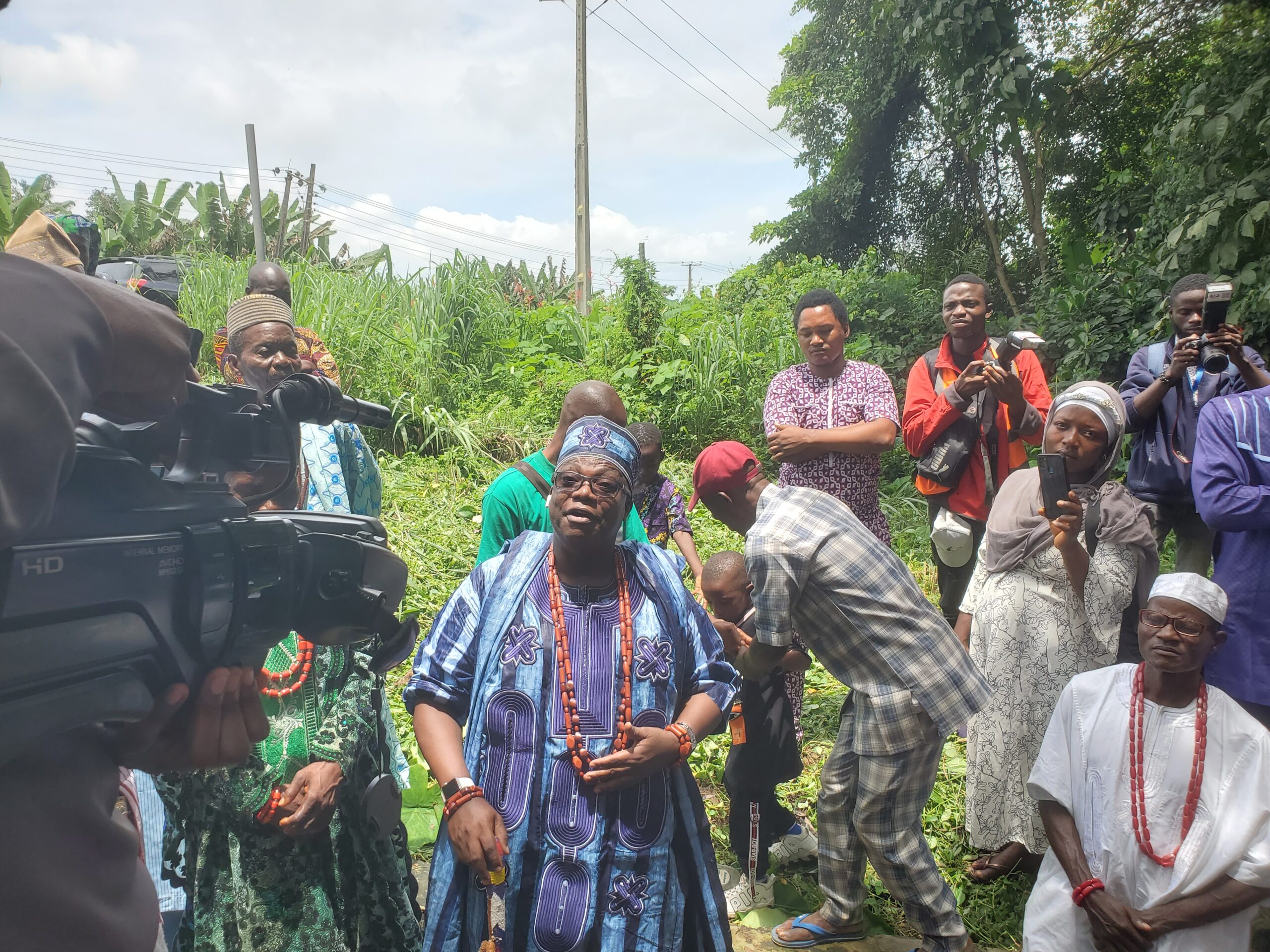
The monarch revealed that only the town, not the king or any chief, can sell lands and only the town can issue receipts. Iloko-Ijesa has been fortunate over the years due to non-greedy kings that have presided over the town’s affairs. When asked how the town was able to protect the 20 acres of forest land from invaders and landgrabbers.
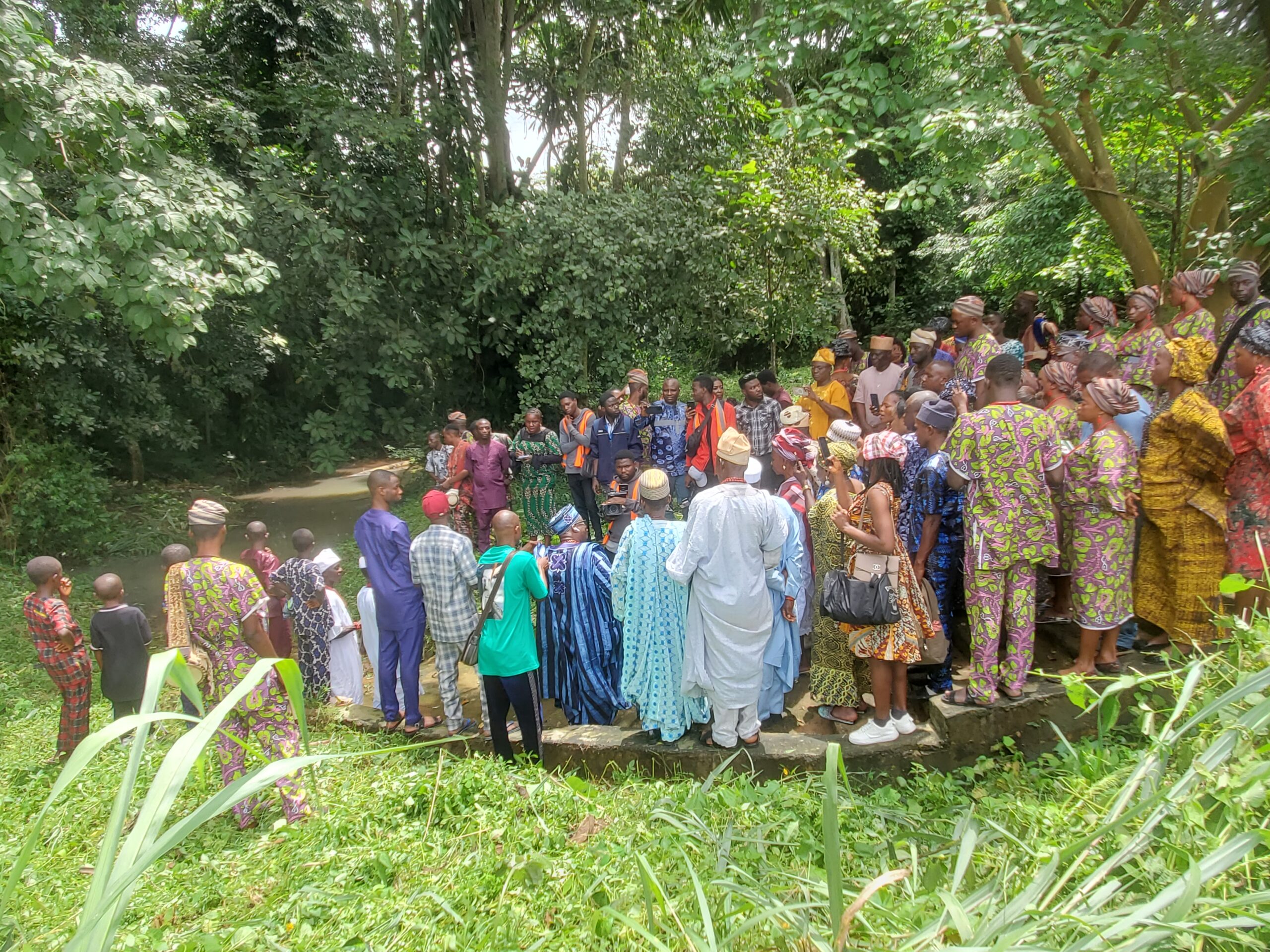
Omi Afero is available for veneration at any moment. People travel from Benin Republic, Ivory Coast, and Togo among other places to make prayers and requests. In addition, we have visitors who come to the stream to express gratitude. Salts, palm oil, and kola nuts are used to honor the stream. When we celebrate the Olokun and Obalogun holidays, the town likewise reveres this stream, he continued.
The monarch revealed that there are plans by the community leaders to build a zoo, recreation garden, amusement park, concert hall, and museum on the 20 acres Afero groove while urging the state government through her ministry of tourism to pay deliberate attention with the aim of making it generate revenue for the state.
Iloko-Ijesa is a relatively tranquil place with an admirable history of helping one another out. You might find it interesting to hear that the community worked together to install all of the town’s infrastructure, including the social, medical, and educational facilities. When we make such requests, Oba Ogungbangbe emphasized, I implore the government to kindly grant them in order to advance the development of our community.
There are taboos associated with the “Afero stream,” such as not washing clothing in the river, throwing dirt in it, or pouring palm oil into it, according to Chief Odelusi Kehinde, the Aworo of Iloko-Ijesa. Additionally, he stated that no one should enter the river wearing black clothing or bringing black pots, and that fish in the stream should not be slaughtered.
There have been cases of people killing fishes in the stream. They killed these fishes and made an effort to prepare them for eating, but they were dismayed to discover that even after spending a lot of time in boiling water, these fishes did not become edible. They have to return these fishes to the stream, says Aworo of Iloko-Ijesa.
The monarch led guests and indigenes back to the tents infront of the palace where students of Iloko-Ijesa schools entertained guests with cultural dances.
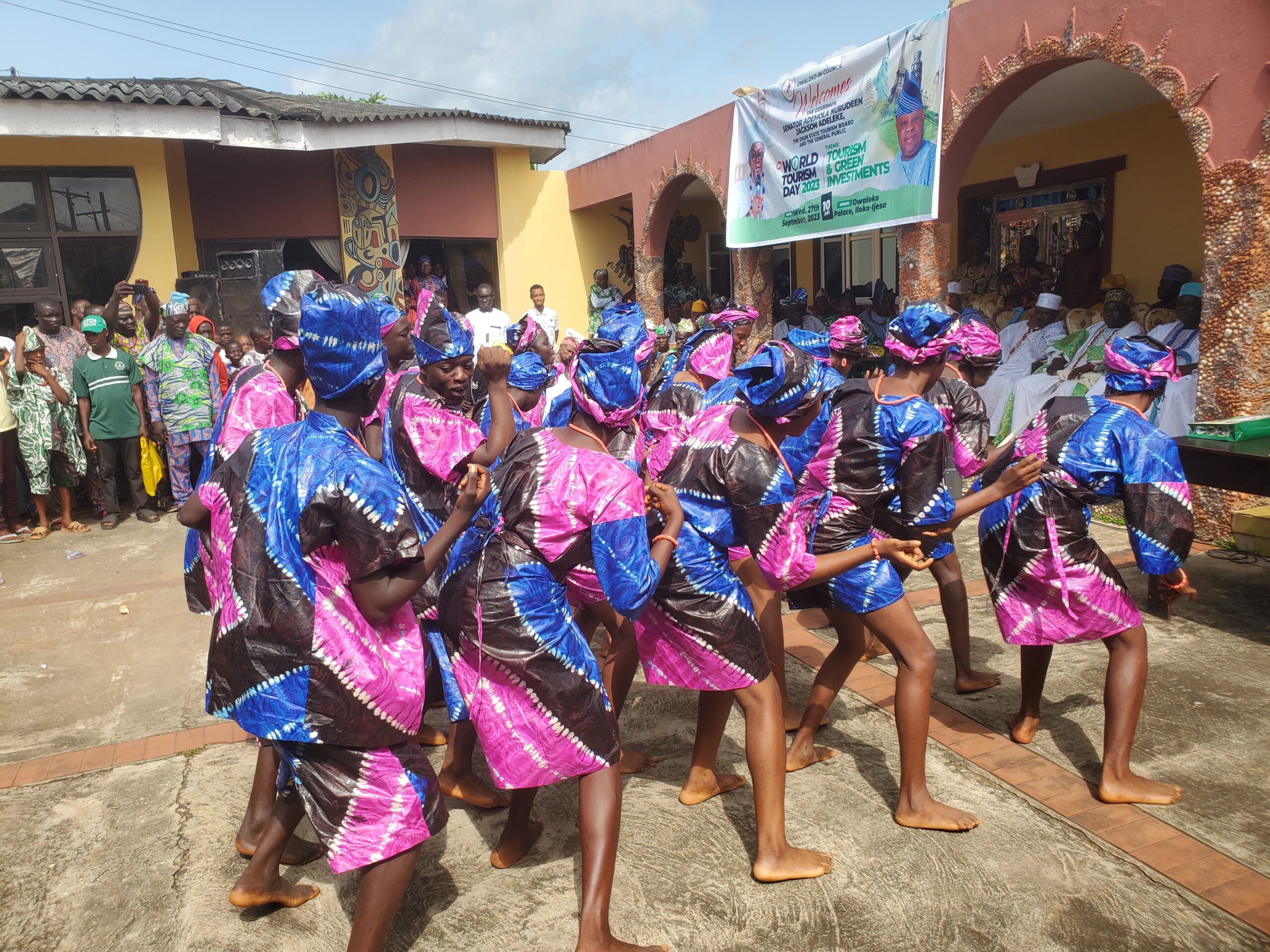
The event was attended by the Elegboro of Ijebu-Ijesa, Oba Moses Olufemi Agunsoye, Oniwoye of Iwoye, Oba Adewumi Ogidiolu, Adooko of Idooko, Oba Micheal Adedeji, Oluomo of Omo-Ijesa, Oba Micheal Adejola, Alaigbe of Aigbe-Okinni, Oba Azeez Oyekan.
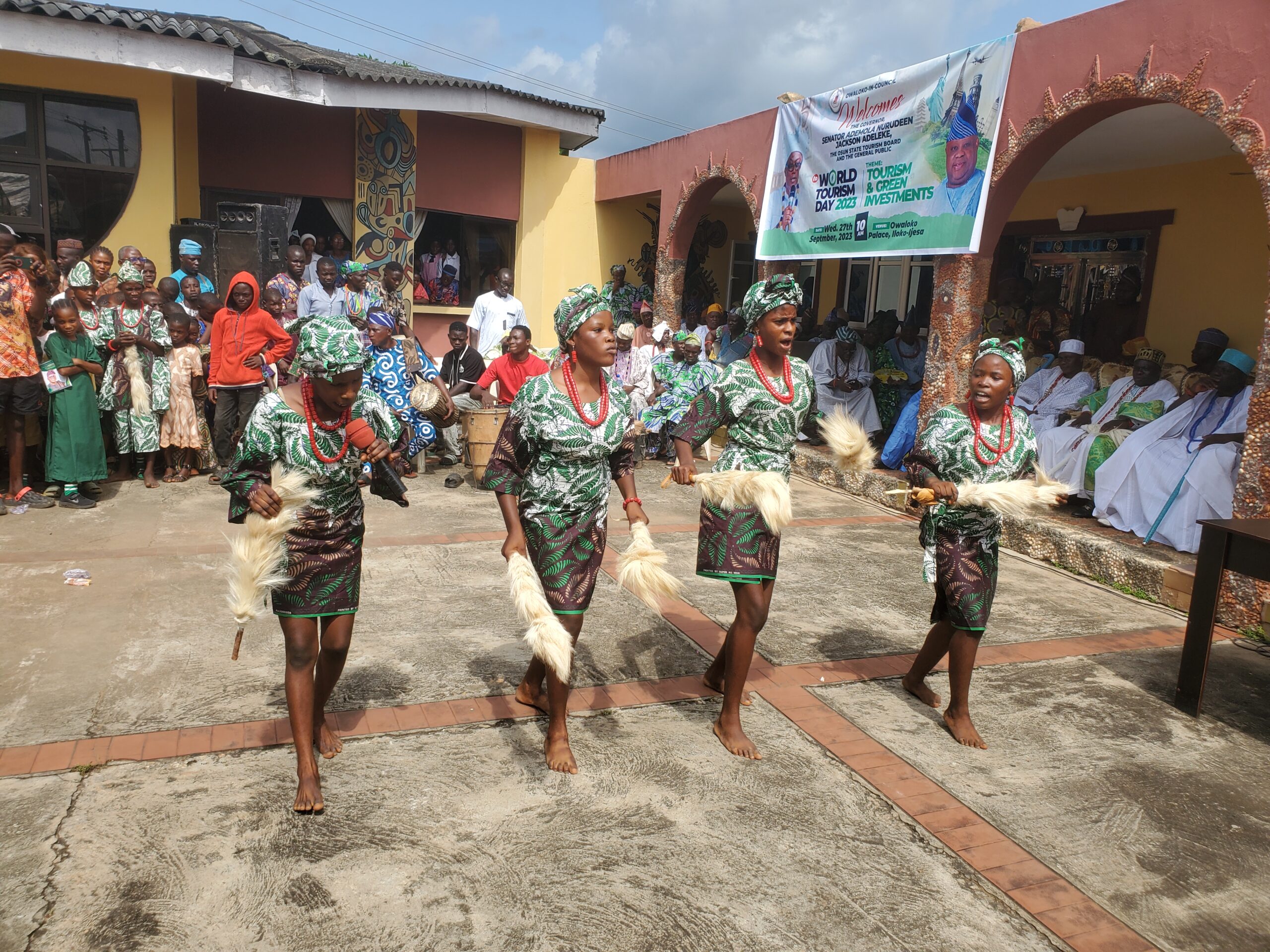
Prof. Gbenga Fasiku, director of the institute of cultural studies at Obafemi Awolowo University, gave a lecture on the theme of the 2023 World Tourism Day, “Tourism and Green Investments,” and urged the state government to use the green resources to increase the state’s revenue.
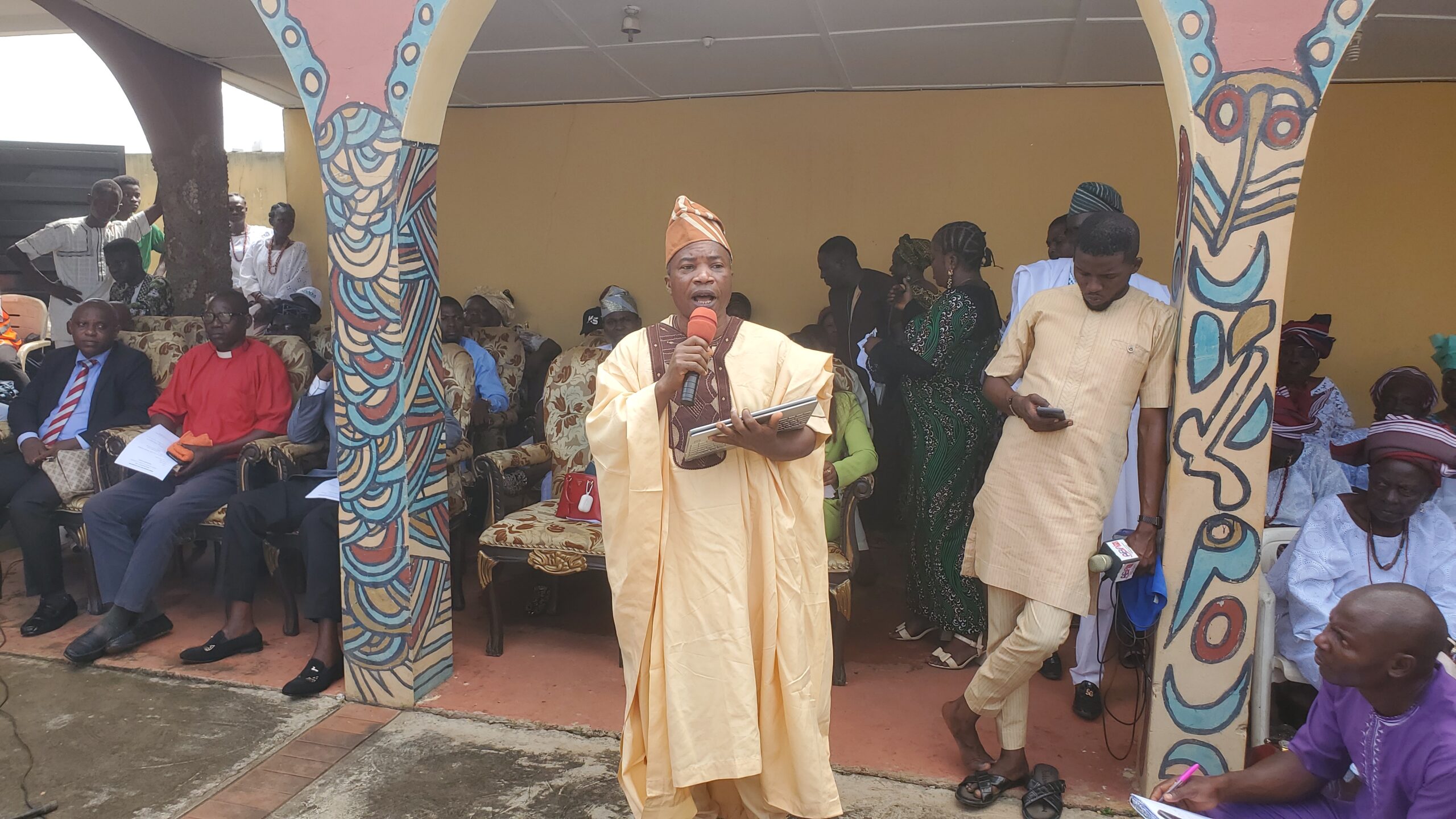
Fasiku also suggested that the state government boost the agriculture departments at Osun State University and Obafemi Awolowo University in order to maximize opportunities for green investments in tourism.
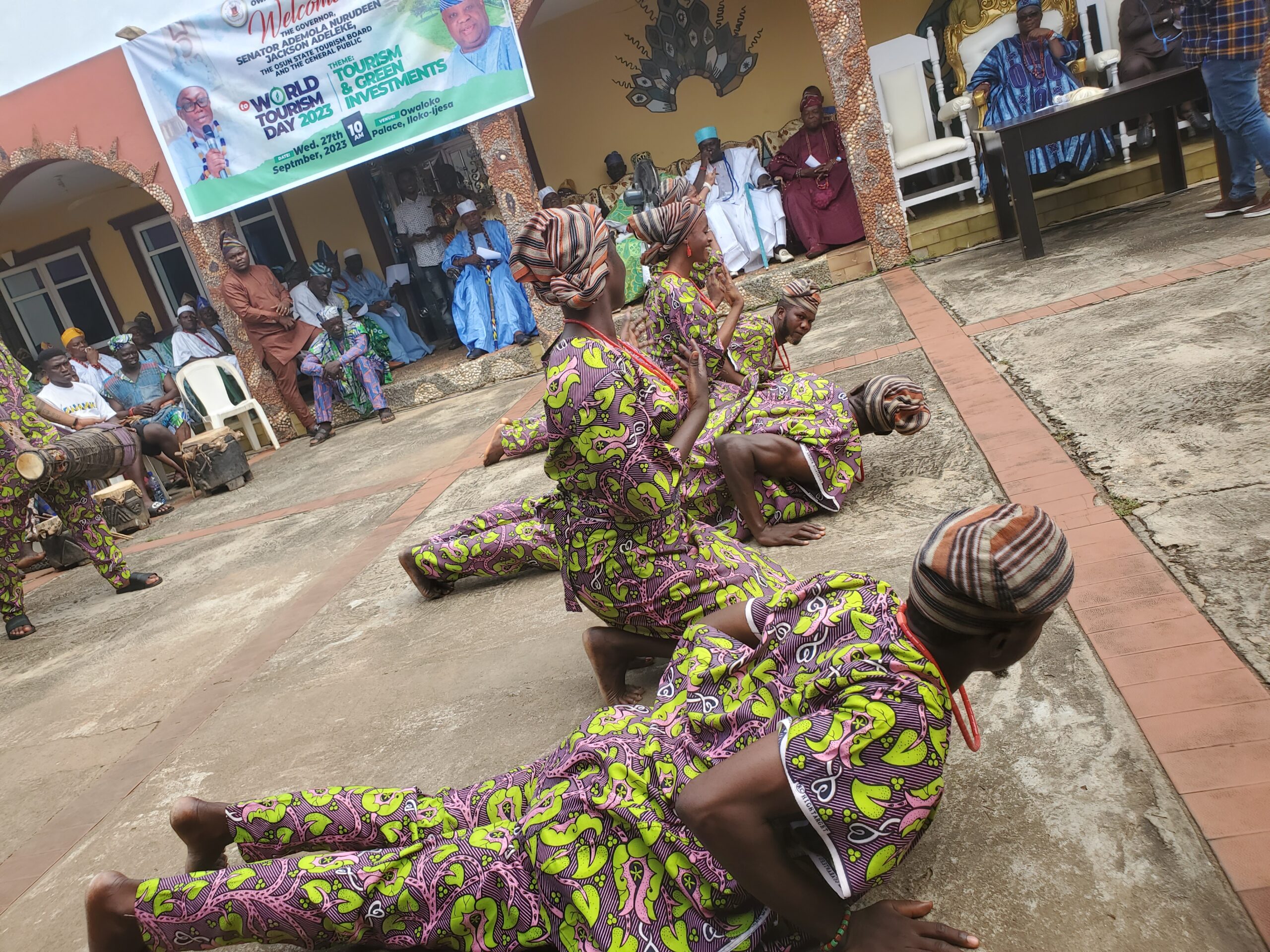
Ademola Adeleke, the governor of Osun State, was ably represented by Prince Dr. Bayo Ogungbangbe, commissioner of cooperatives and empowerment. Ogungbangbe said the government is prepared to make significant investments in tourism while addressing the populace.
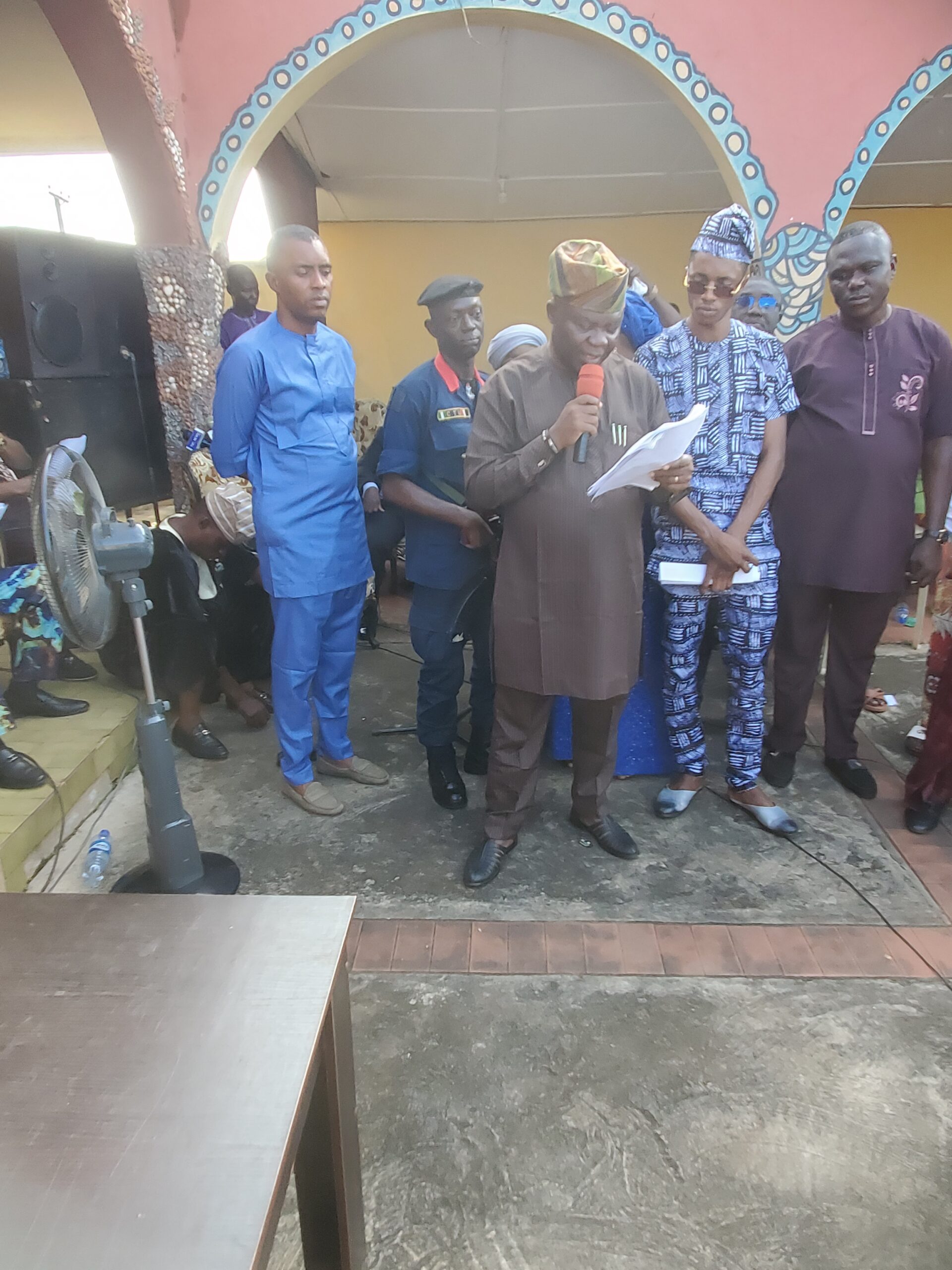
According to him, my administration is charged with realizing rural tourism’s full potential, which has the ability to especially help historically marginalized populations like women, young people, and indigenous people.
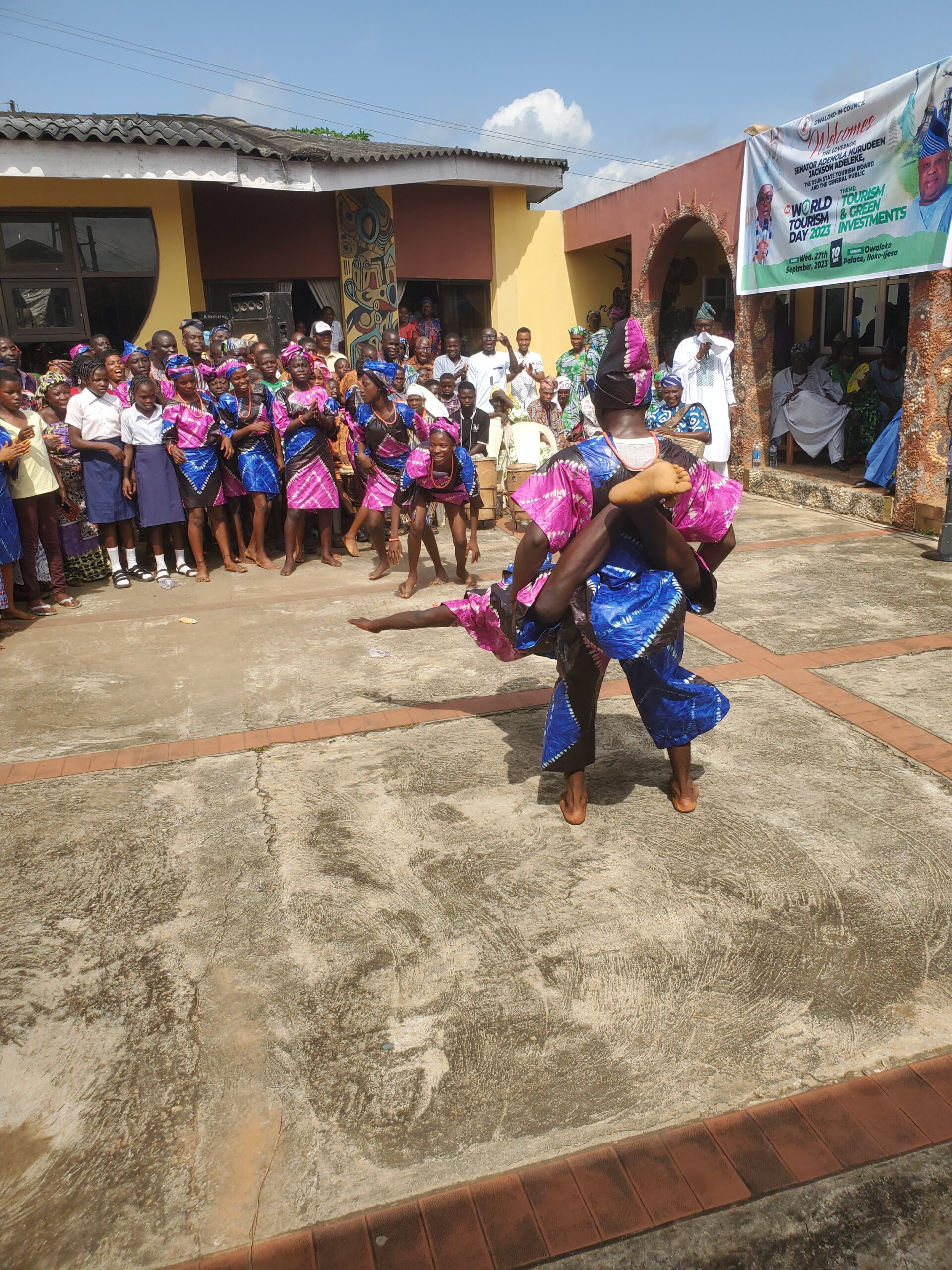
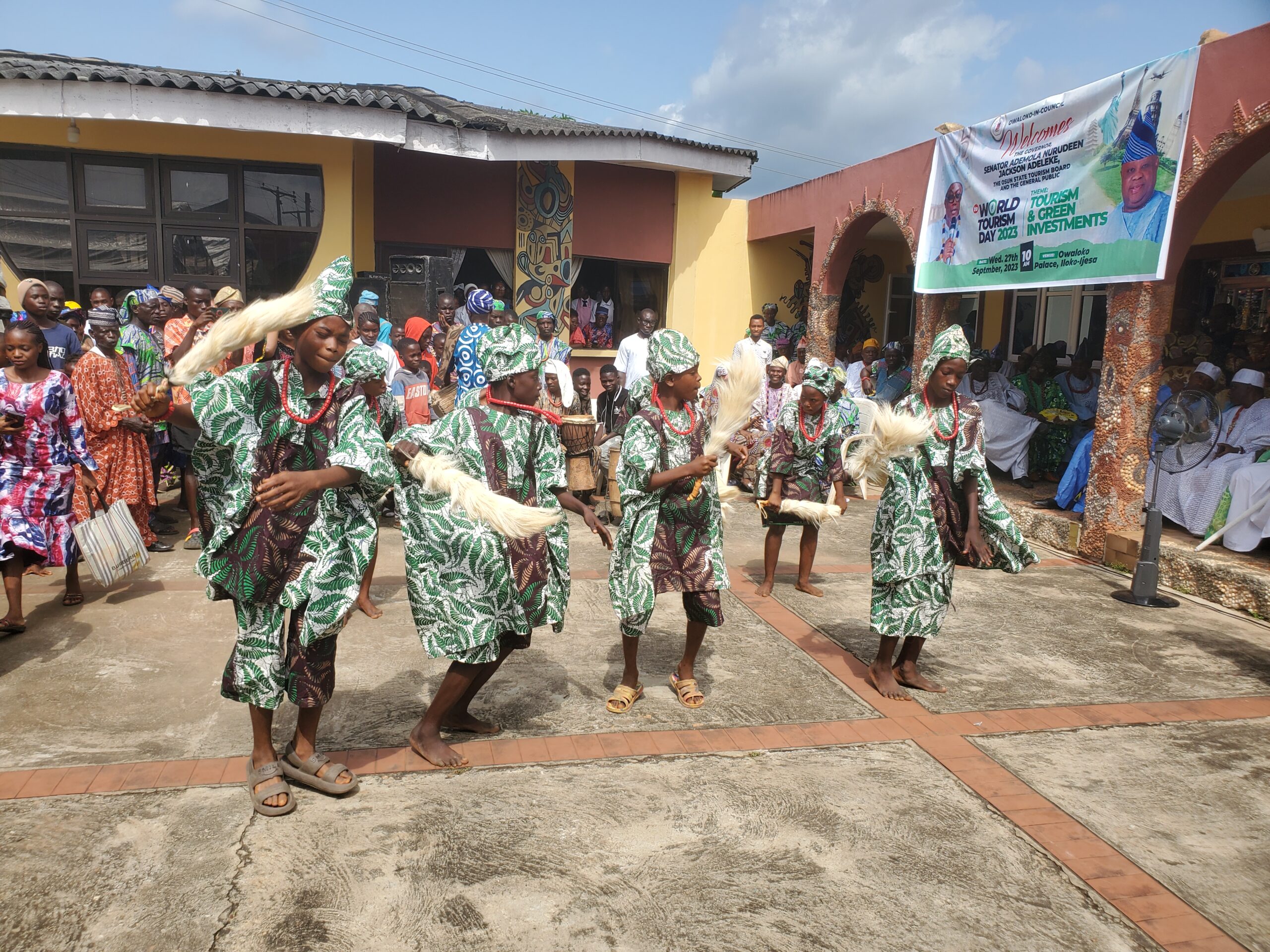
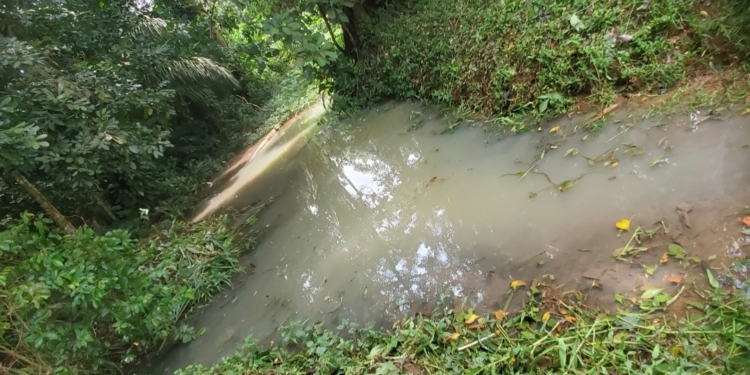




Discussion about this post